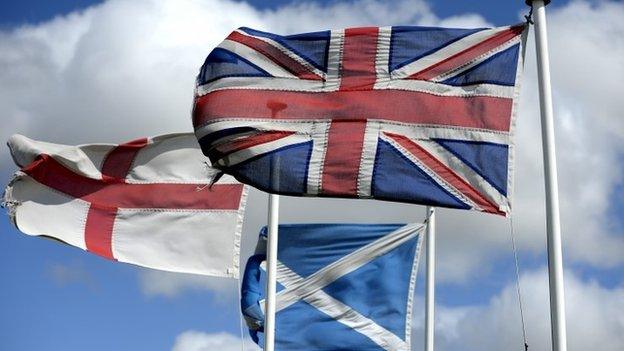New 'veto' announced for English MPs
- Published
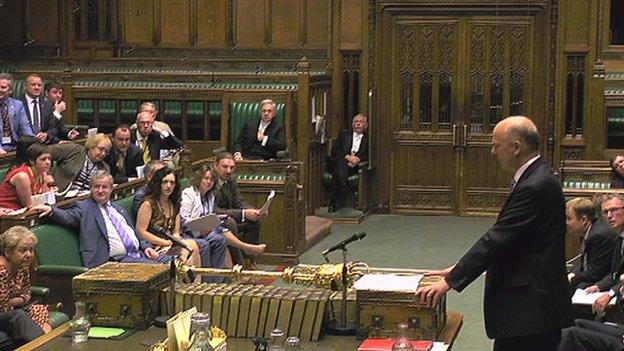
The government will give MPs from English constituencies a new "veto" over laws affecting England only.
Commons Leader Chris Grayling said the change, also applying in some cases to Welsh MPs, would bring "real fairness to our constitutional arrangements".
SNP leader Nicola Sturgeon called the plan "staggering in the extent... of its hypocrisy and incoherence".
Labour said it was an "outrage" that ministers wanted to rush into making "profound constitutional change".
Shadow Commons leader Angela Eagle said the plans risked creating two classes of MPs and accused the Conservatives of a "cynical" attempt to "manufacture itself a very much larger" majority in the Commons.
Under the proposals, external, all MPs would continue to vote on all key stages of legislation.
But English MPs - and in some cases English and Welsh MPs - will have a veto in Westminster when debating matters that have been devolved to the devolved administrations.
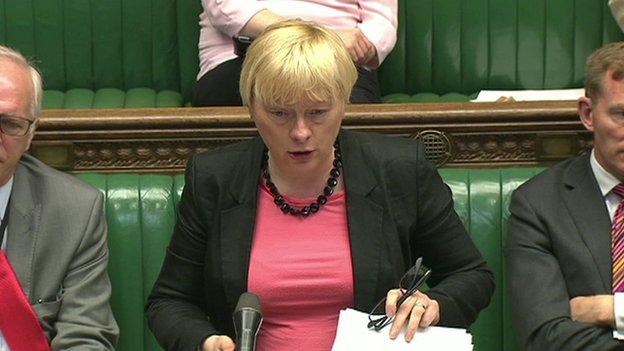
Labour's Angela Eagle criticised the 'back of a fag packet' proposals
MPs will debate the changes on 15 July, Mr Grayling said, and the system will be changed using the rules - known as standing orders, external - that dictate how Parliament conducts its business.
With more powers set to be devolved to the Scottish Parliament after September's independence referendum, Tory MPs have said it is not right that MPs representing Scottish constituencies can continue to determine laws affecting England only.
Mr Grayling told MPs that Scotland, Wales and Northern Ireland were getting a "stronger voice" and that it was "only fair" to do the same for England.
The Speaker will be asked to certify which bills or parts of bills relate to England or England and Wales only, he said.

New system
The Speaker will judge which parts of a bill relate to just England, or England and Wales
An England-only committee stage will consider bills deemed "England-only in their entirety"
Membership of this committee will reflect the number of MPs each party has in England
Where sections of legislation relate only to England or England and Wales, agreement of a "Legislative Grand Committee" will be required

There will be no changes in the House of Lords, Mr Grayling said. But where Lords amendments are certified as England or England and Wales only, a "double majority" system applies, meaning it will need a majority of both the whole House of Commons and MPs representing English or English and Welsh constituencies.
Tablet computers will be used to count MPs' votes as they walk through the voting lobbies so officials can instantly register whether they have used their veto in votes where the "double majority" rule applies.
To jeers from opposition benches, Mr Grayling said "Today we are answering the West Lothian Question", a reference to the constitutional anomaly that lets Scottish, Welsh and Northern Ireland MP at Westminster vote on measures that only apply in England.

West Lothian Question
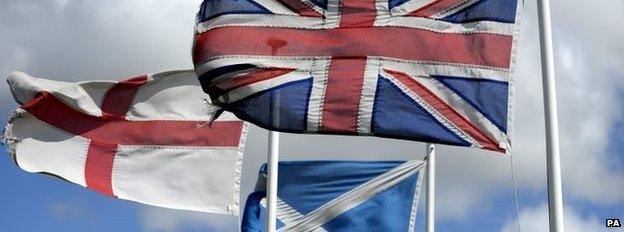
Many powers - like education - have been devolved from Westminster, and are the responsibility of the Scottish, Welsh and Northern Irish governments
In 1977 Labour MP Tam Dalyell - the MP for West Lothian - highlighted what he saw as a dilemma caused by devolution: that Scottish MPs would carry on voting on English issues but English MPs wouldn't have a say on matters in Scotland
He said it was absurd that he was able to vote on matters affecting the English town of Blackburn, Lancashire, not Blackburn, West Lothian, which was in his own constituency
Debate over the anomaly has intensified with the new powers being handed to Scotland following its independence referendum

The SNP's Pete Wishart described the English votes policy as a "cobbled together unworkable mess", and said it was "totally unacceptable".
He said this policy showed that the Tories were doing their best to ensure Scotland would become an independent country.
His party leader Nicola Sturgeon said: "The Tories have produced a constitutional shambles - staggering in the extent of its hypocrisy and incoherence.
"Under these plans - which are all about cutting Scottish MPs out of votes which impact on Scotland and our budget - the Tories are proposing an 'English veto' and 'double majority'.
"I have been very clear that, at least in part, the level of support for independence will be determined by what the Tory government at Westminster does, as well as what the SNP Government does. And there is no question that the great disrespect shown to Scotland in these proposals is likely to have more people asking whether Westminster is capable of representing Scotland's interests at all."
Labour's Sir Gerald Kaufman, the father of the house, said the title of the motion, English votes for English laws, "sounds racist".
He added: "This government is undermining the whole basis of British democracy, right through from when the Magna Carta was signed."
- Published14 October 2014
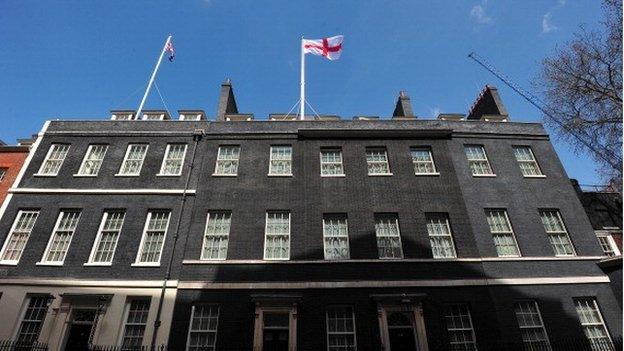
- Published12 July 2021
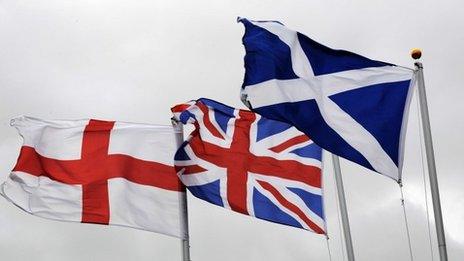
- Published27 May 2015
